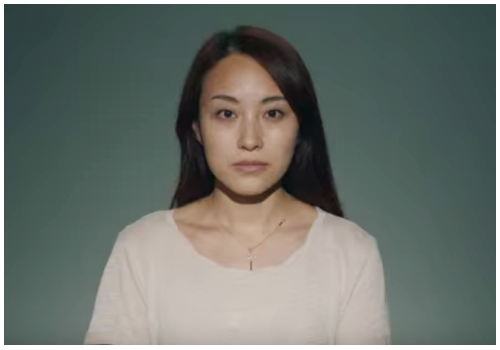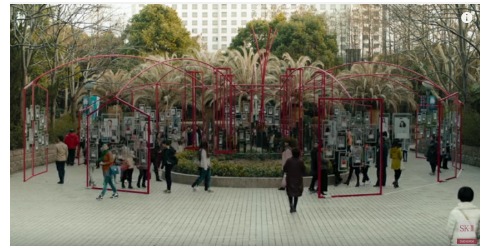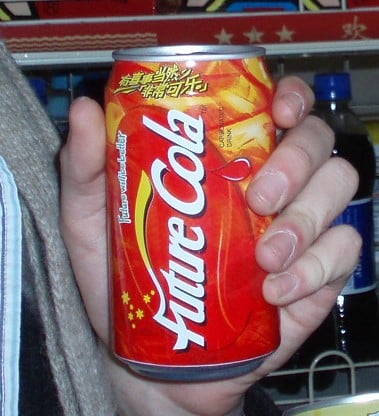China Brands, Marketing & Consumers
Editorial: Behind SK-II’s China’s “Change Destiny” Campaign
Some call the recent ad campaign of skincare brand SK-II hypocritical. Is it?
Published
10 years agoon

The ad campaign of skin care brand SK-II has been all over the news, both in and outside China, since it was launched on April 7 – triggering much discussion on the phenomenon of China’s ‘leftover women’ and the ad itself, with some calling it ‘hypocritical’. But is it?
Japanese skin care brand SK-II has caused quite a stir in China with its latest ad campaign that focuses on unmarried women over the age of 25 in China, who have been labeled ‘leftover women’ by Chinese media for years. The video, that is part of the brand’s worldwide ‘Change Destiny’ campaign, has been watched over 10 million times within ten days of its release.
“A wrinkled past in China”
It’s not the first time SK-II has caused commotion in China, where the brand has a somewhat of a wrinkled past. In 2005, the company was suspected of deceiving consumers with its anti-wrinkle products, according to Chinese state media. Even before this news, Chinese netizens were already calling for a boycott of the Japanese SK-II in 2004.
In 2006, SK-II producer Procter & Gamble (宝洁) stopped the import of all SK-II products in China after the use of banned substances was detected by Chinese inspectors, followed by much controversy and media attention. According to an 2006 Ad Age article, the manufacturer defended the chemicals in SK-II as the same traces were found in other comparable products by companies such as Lancome or Estee Lauder – yet they suffered no consequences in their China sales. This left some industry observers wondering whether or not the brand was purposely picked on by the Chinese government for its Japanese origin, linking it to anti-Japanese sentiment that has existed in China since World War II.
A decade later, SK-II has launched its major ‘Change Destiny’ (#改写命运#) brand campaign that features, according to the brand: “(..) strong and independent women who have chosen to pursue their dreams instead of being pressured into marrying for the sake of it” (SK-II website).
 SK-II ‘change destiny’ campaign. See the video here.
SK-II ‘change destiny’ campaign. See the video here.
“I won’t be happy if I marry for the sake of marrying”
The company chose the successful Swedish ad company Fordman & Bodenfors to produce their campaign video. This ad agency also produced the video for H&M’s world recycle week featuring MIA, that received nearly a million views on Youtube within a week after its release.
The SK-II 4-minute-video titled ‘Marriage Market Takeover‘ features several unmarried Chinese women who talk about the pressure they experience from their family and society at large to get married, and the stigmatization they face for being single.

(1) “You are a leftover woman”, (2) “You become a subject people talk about”, (3) “And you get so much social pressure”.
After talking about their current situation, the women go to a so-called ‘marriage market’ – a well-known event in China that is generally held on Sundays in urban parks. This is a place where parents stand with ‘ads’ that tell the age, profession, income, and other details about their son or daughter, in the hopes of finding a suitable match for them.
 Shot of the ‘marriage market’ in th Shanghai Park in the video.
Shot of the ‘marriage market’ in th Shanghai Park in the video.
Instead of coming to the market in search of a partner, they come there to see their own ‘ad’. The park in Shanghai where the ‘marriage market’ is normally held now has a wall of ads that are likely placed there for the SK-II campaign film. These ‘ads’ show the portraits of the different women, with an accompanying text saying things like: “I won’t be happy if I marry for the sake of marrying”.

Their parents then arrive at the market and see their daughter’s picture and read her message to them. They are seemingly moved, and then express their understanding for their daughter’s situation.

“There is a word for advertising like this, and that word is ‘hypocrisy’.”
The SK-II campaign video proved to be a huge success – it had already hit 1.2 million views on Youku within the first day of launching. The reactions on Chinese social media were overall very positive, as mainly female netizens recognized their own experiences in the video. Some exemplary netizens’ reactions were: “Whether I’m married or not is nobody’s business,” or: “I won’t stop pursuing my dreams because of pressure from society,” and: “Marriage is about feeling, not about age.”
But the ad also had critics. Although women’s rights activist Zheng Churan generally welcomed the ad despite its commercial motives, she did criticize how it focused on the stereotype of the “leftover woman”, ignoring “the struggles of poor, less-educated women”. As she said: “We only see white-collar, elite women in this ad, but an 18-year-old factory girl pressed into marriage still has no voice” (Japan Times).
State media outlet Xinhua news quoted online female writer Gu Yingying saying that the ad “splashes a bottle of dirty water onto (women’s) independence and confidence”, and that it was “full of sentiments of depression and messages about society’s intolerance and conservatism”.
China’s state broadcaster CCTV reported on the video being “welcomed across China”, but also called it an ad for “pro-singledom”.
Outside the China media sphere, Quartz writer Annalisa Merelli responded to the campaign with an article titled “Another viral ad tries to “empower” women while selling them products to look young forever“. In this article, Merelli writes: “There is a word for advertising like this, and that word is “hypocrisy”. To this, she adds:
“No matter the amount of moving music and public displays of support, there is simply no way a beauty brand should be able to both profit from a growing huge market ($191.7 billion projected globally for anti-aging alone) that feeds off the idea that you look too dark-skinned and too old, and also play fairy godmother of female empowerment” (Quartz, April 12).
“The exclusion of the ’18-year-old factory girl’ is understandable: she is not SK-II’s target audience.”
But how ‘hypocritical’ is this ad for addressing China’s ‘leftover women’ phenomenon while having commercial interests? First, the brand does not hide the video’s commercial aspect. On the contrary, the SK-II brand logo is clearly marked in the ad and the video was released from official SK-II channels. Second, the women represented in the video are the brand’s intended consumers. Within China, it’s mostly the highly educated and urban women who buy SK-II kinds of brands and suffer pressure from society for being unmarried- in that way, there simply and very apparently is a way that a beauty brand can profit from a huge market while encouraging their “female empowerment”.
The exclusion of the ’18-year-old factory girl’ is understandable from a commercial perspective: she is not SK-II’s target audience. An SK-II moisturizer currently is priced around 1370 RMB (±211 US$) on Tmall. According to China Labour Bulletin, the minimum wages in China vary across China, from 850 RMB per month (131 US$ )to 2030 RMB (313 US$). SK-II products simply are an unattainable luxury for many women in China, except for those women who generally have a solid educational background, a blossoming career, and the access to high-end stores that sell SK-II – which are often the same women facing the ‘leftover’ pressure.
Commercial motives aside, the pressure China’s unmarried women suffer is real. About 80% of China’s bachelorettes over the age of 24 experience pressure by their families to get married, whilst a Zhenai survey pointed out that 50% of Chinese men think women are already ‘leftover’ when they are unmarried by the age of 25.
The pressure, being both familial and societal, comes from all angles. Parents, coming from a completely different generation, often lack the understanding that their daughter is waiting for ‘the one’. As the dad in the video says: “In our days, matchmaking was simple: you got matched, you got married.” They then suffer extra pressure because those born after 1978 were children of China’s one-child policy, which means they are often their parents’ only child able to give them a grandchild.
In society at large, the pressure is also double-faced. Besides deeply-rooted Confucian ideas about respecting one’s parents by getting married and fulfilling one’s role as “good wife and wise mother”, there is also an existing unbalance in male/female ratio. With millions of men left without an eligible partner and an aging China, there is ample societal need for single women to settle down and get married – which makes being ‘leftover’ all the more difficult. The fact that there are Chinese writers and academics calling on women to set some of their personal happiness aside to get married “for the country and for society” does not make things easier.
“By choosing the ‘leftover’ issue and turning it into a positive message, SK-II has rebranded itself in the PRC as a progressive and empowering brand name.”
SK-II was not hypocritical in being a commercial company releasing an empowering message, nor is the pressure on women it pictures unrealistic. The parents’ swift transformation after seeing their daughter’s ad, however, could be said to be somewhat starry-eyed; their sudden understanding for their daughter’s situation is unlikely to change traditional perceptions on China’s unmarried women overnight. This does not make SK-II hypocritical; it just makes the video the commercial that it is. Luxury brands are supposed to give consumers a mental connection to positivity, confidence, and bright possibilities; not leave us pessimistic about the future.
The brand’s choice for the topic of ‘leftover women’ is a strategic one. SK-II had to make up for some of its wrinkled past in China. The consumers it mainly needs to win over are also the women who often face pressure in everyday China. By choosing the ‘leftover’ issue and turning it into a positive message, SK-II has rebranded itself in the PRC as a progressive and empowering brand name. It also profits from one of the world’s most important markets by doing so. Through this video, SK-II has won the sympathy of an audience of millions who have cash to spend on the luxury items SK-II promotes.
An additional reason why SK-II’s campaign focus is a smart strategic move, is that the phenomenon of ‘leftover women’ is also a popular recurring topic internationally; the struggles of single Chinese women have captured the interest of the mainstream Western media for some years now. The ad campaign therefore went viral both in and outside – killing two birds in one stone.
All in all, Forsman & Bodenfors have done a great job at what they do: SK-II’s brand name is all over the web, the majority of Chinese netizens welcomed the ‘change destiny’ message with open arms, and they have reiterated what the product behind the campaign is all about. After all, who doesn’t want a pressure-free life, a wrinkle-free face, and a happy end to a troubled story?
– By Manya Koetse
Follow @WhatsOnWeibo
©2016 Whatsonweibo. All rights reserved. Do not reproduce our content without permission – you can contact us at info@whatsonweibo.com.
Manya is the founder and editor-in-chief of What's on Weibo, offering independent analysis of social trends, online media, and digital culture in China for over a decade. Subscribe to gain access to content, including the Weibo Watch newsletter, which provides deeper insights into the China trends that matter. More about Manya at manyakoetse.com or follow on X.

You may like
China Brands, Marketing & Consumers
House of Wahaha: Zong Fuli Resigns
In the year following her father’s death, Zong Fuli dealt with controversy after controversy as the head of Chinese food & beverage giant Wahaha.
Published
2 days agoon
October 14, 2025
It’s a bit like a Succession-style corporate drama 🍿.
Over the past few years, we’ve covered stories surrounding Chinese beverage giant Wahaha (娃哈哈) several times — and with good reason.
Since the passing of its much-beloved founder Zong Qinghou (宗庆后) in March 2024, the company has been caught in waves of internal turmoil.
Some context: Wahaha is regarded as a patriotic brand in China — not only because it’s the country’s equivalent of Coca-Cola or PepsiCo (they even launched their own cola in 1998 called “Future Cola” 非常可乐, with the slogan “The future will be better” 未来会更好), but also because its iconic drinks are tied to the childhood memories of millions.

Future Cola by Wahaha via Wikipedia.
There’s also the famous 2006 story when Zong Qinghou refused a buyout offer from Danone. Although the details of that deal are complex, the rejection was widely seen as Zong’s defense of a Chinese brand against foreign takeover, contributing to his status as a national business hero.
After the death of Zong, his daughter Zong Fuli, also known as Kelly Zong (宗馥莉), took over.
🔹 But Zong Fuli soon faced controversy after controversy, including revelations that Wahaha had outsourced production of some bottled water lines to cheaper contractors (link).
🔹 There was also a high-profile family inheritance dispute involving three illegitimate children of Zong Qinghou, now living in the US, who sued Zong Fuli in Hong Kong courts, claiming they were each entitled to multi-million-dollar trust funds and assets.
🔹 More legal trouble arrived when regulators and other shareholders objected to Zong Fuli using the “Wahaha” mark through subsidiaries and for new products outside officially approved channels (the company has 46% state ownership).
⚡️ The trending news of the moment is that Zong Fuli has officially resigned from all positions at Wahaha Group as chairman, legal representative, and director. She reportedly resigned on September 12, after which she started her own brand named “Wa Xiao Zong” (娃小宗). One related hashtag received over 320 million views on Weibo (#宗馥莉已经辞职#). Wahaha’s board confirmed the move on October 10, appointing Xu Simin (许思敏) as the new General Manager. Zong remains Wahaha’s second-largest shareholder.
🔹 To complicate matters further, Zong’s uncle, Zong Wei (宗伟), has now launched a rival brand — Hu Xiao Wa (沪小娃) — with product lines and distribution networks nearly identical to Wahaha’s.
As explained by Weibo blogger Tusiji (兔撕鸡大老爷), under Zong Qinghou, Wahaha relied on a family-run “feudal” system with various family-controlled factories. Zong Fuli allegedly tried to dismantle this system to centralize power, fracturing the Wahaha brand and angering both relatives and state investors.
Others also claim that Zong had already been engaged in a major “De-Wahaha-ization” (去娃哈哈化) campaign long before her resignation.
In August of this year, Zong gave an exclusive interview to Caijing (财经) magazine where she addressed leadership challenges and public controversies. In the interview, Zong spoke more about her views on running Wahaha, advocating long-term strategic growth over short-term results, and sharing her determination to not let controversy distract her from business operations. That plan seems to have failed.
While Chinese netizens are watching this family brand war unfold, many are rooting for Zong after everything she has gone through – they feel her father left her in a complicated mess after his death.
At the same time, others believe she tried to run Wahaha in a modern “Western” way and blame her for that.
For the brand image of Wahaha, the whole ordeal is a huge blow. Many people are now vowing not to buy the brand again.
As for Zong’s new brand, we’ll have to wait for the next episode in this family company drama to see how it unfolds.
By Manya Koetse
(follow on X, LinkedIn, or Instagram)
Spotted a mistake or want to add something? Please let us know in comments below or email us. First-time commenters, please be patient – we will have to manually approve your comment before it appears.
©2025 Whatsonweibo. All rights reserved. Do not reproduce our content without permission – you can contact us at info@whatsonweibo.com.
China Animals
China Faces Unprecedented Donkey Shortage Crisis
“We have plenty of cattle and horses in China now — just not enough donkeys” (“目前我国牛马都不缺,就缺驴”).
Published
2 weeks agoon
October 5, 2025
China is facing a serious donkey shortage. China’s donkey population is far below market demand, and the prices of donkey-related products continue to rise.
Recently, this issue went trending on Weibo under hashtags such as “China Currently Faces a Donkey Crisis” (#我国正面临缺驴危机#).
The Donkey Branch of China’s Livestock Association (中国畜牧业协会驴业分会) addressed this issue in Chinese media earlier last week, telling China News Weekly (中国新闻周刊): “We have plenty of cattle and horses in China now — just not enough donkeys” (“目前我国牛马都不缺,就缺驴”).
China’s donkey population has plummeted by nearly 90% over the past decades, from 11.2 million in 1990 to just 1.46 million in 2023.
The massive drop is related to the modernization of China’s agricultural industry, in which the traditional role of donkeys as farming helpers — “tractors” — has diminished. As agricultural machines took over, donkeys lost their role in Chinese villages and were “laid off.”
Donkeys also reproduce slowly, and breeding them is less profitable than pigs or sheep, partly due to their small body size.
Since 2008, Africa has surpassed Asia as the world’s largest donkey-producing region. Over the years, China has increasingly relied on imports to meet its demand for donkey products, with only about 20–30% of the donkey meat on the market coming from domestic sources.
China’s demand for donkeys mostly consists of meat and hides. As for the meat — donkey meat is both popular and culturally relevant in China, especially in northern provinces, where you’ll find many donkey meat dishes, from burgers to soups to donkey meat hotpot (驴肉火锅).
However, the main driver of donkey demand is the need for hides used to produce Ejiao (阿胶) — a traditional Chinese medicine made by stewing and concentrating donkey skin. Demand for Ejiao has surged in recent years, fueling a booming industry.
China’s dwindling donkey population has contributed to widespread overhunting and illegal killings across Africa. In response, the African Union imposed a 15-year ban on donkey skin exports in February 2023 to protect the continent’s remaining donkey population.
As a result of China’s ongoing “donkey crisis,” you’ll see increased prices for donkey hides and Ejiao products, and oh, those “donkey meat burgers” you order in China might actually be horse meat nowadays. Many vendors have switched — some secretly so (although that is officially illegal).
Efforts are underway to reverse the trend, including breeding incentives in Gansu and large-scale farms in Inner Mongolia and Xinjiang.
China is also cooperating with Pakistan, one of the world’s top donkey-producing nations, and will invest $37 million in donkey breeding.
However, experts say the shortage is unlikely to be resolved in the short term.
The quote that was featured by China News Weekly — “We have cows and horses, but no donkeys” (“牛马有的是,就缺驴”) — has sparked viral discussion online, not just because of the actual crisis but also due to some wordplay in Chinese, with “cows and horses” (“牛马”) often referring to hardworking, obedient workers, while “donkey” (“驴”) is used to describe more stubborn and less willing-to-comply individuals.

Not only is this quote making the shortage a metaphor for modern workplace dynamics in China, it also reflects on the state media editor who dared to feature this as the main header for the article. One Weibo user wrote: “It’s easy to be a cow or a horse. But being a donkey takes courage.”
By Manya Koetse
(follow on X, LinkedIn, or Instagram)
Spotted a mistake or want to add something? Please let us know in comments below or email us. First-time commenters, please be patient – we will have to manually approve your comment before it appears.
©2025 Whatsonweibo. All rights reserved. Do not reproduce our content without permission – you can contact us at info@whatsonweibo.com.
Subscribe
What’s on Weibo is a reader-supported publication, run by Manya Koetse (@manyapan), offering independent analysis of social trends in China for over a decade. To receive new posts and support our work, consider becoming a paid subscriber.

Get in touch
Would you like to become a contributor, or do you have any tips or suggestions? Get in touch here!

From Tents to ‘Tangping Travel”: New Travel Trends among Young Chinese

House of Wahaha: Zong Fuli Resigns

How the “Nexperia Incident” Became a Mirror of China–Europe Tensions

China Faces Unprecedented Donkey Shortage Crisis

Nanchang Crowd Confuses Fan for Knife — Man Kicked Down and Taken Away

“Jiangyou Bullying Incident”: From Online Outrage to Offline Protest

The Rising Online Movement for Smoke-Free Public Spaces in China

China Trend Watch: Pagoda Fruit Backlash, Tiananmen Parade Drill & Alipay Outage (Aug 11–12)

From Schadenfreude to Sympathy: Chinese Online Reactions to Charlie Kirk Shooting

Passing the Torch from ‘Ne Zha’ to ‘Nobody’: China’s Box Office Poster Relay Tradition
Popular Reads
-

 China Memes & Viral3 months ago
China Memes & Viral3 months agoHidden Cameras and Taboo Topics: The Many Layers of the “Nanjing Sister Hong” Scandal
-

 China Books & Literature12 months ago
China Books & Literature12 months agoThe Price of Writing Smut: Inside China’s Crackdown on Erotic Fiction
-

 China Insight5 months ago
China Insight5 months agoUnderstanding the Dr. Xiao Medical Scandal
-

 China Memes & Viral10 months ago
China Memes & Viral10 months agoOur Picks: Top 10 Chinese Buzzwords and Phrases of 2024 Explained





